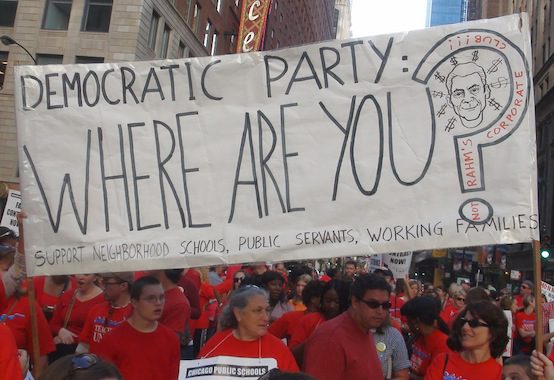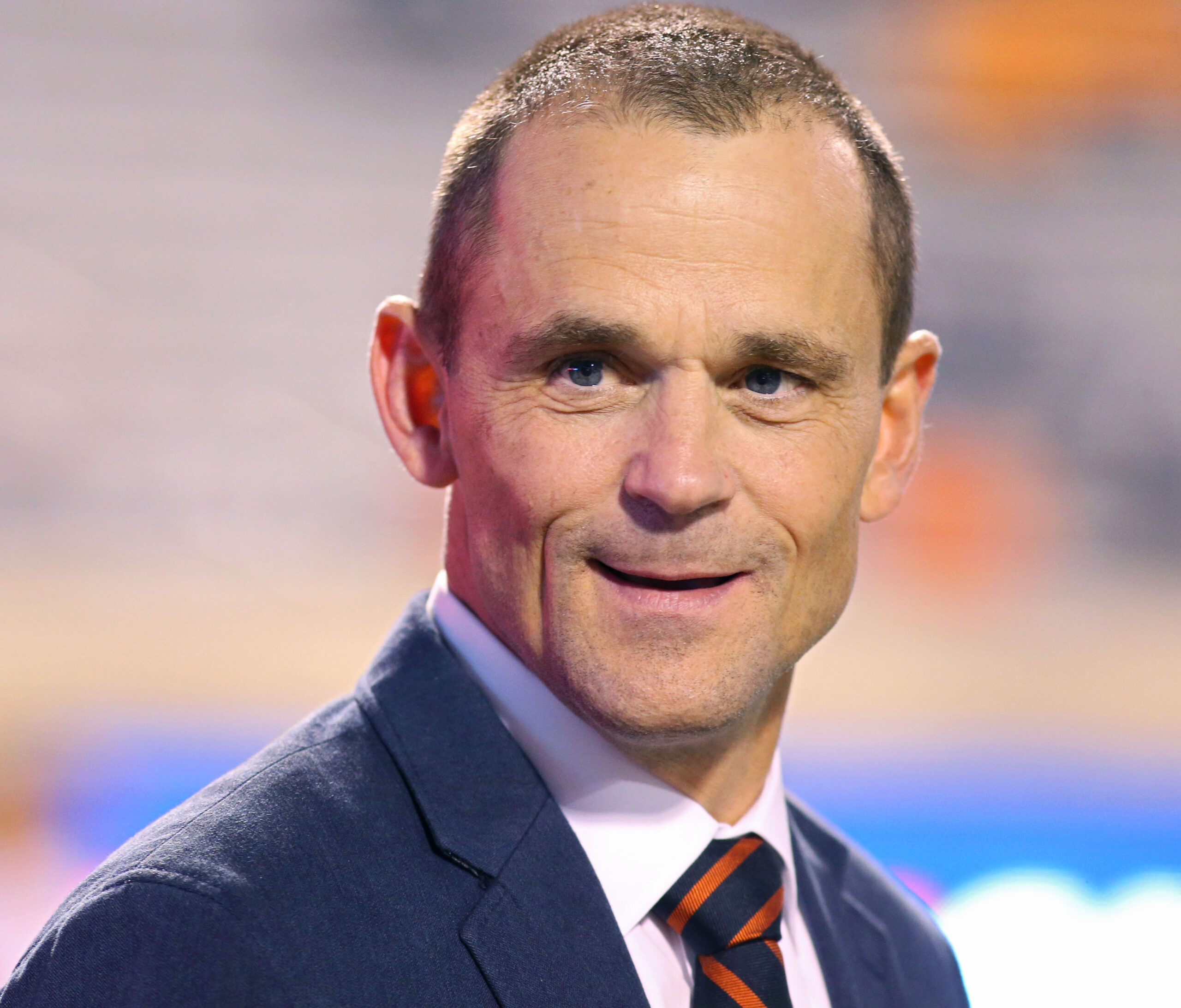Elections, Not Strikes

One of the more interesting features of the continuing teachers’ strike in Chicago is its decisive rejection by the liberal establishment. Over the past few of days, the New York Times has run two columns (here and here) and an unsigned editorial denouncing the strike for placing teachers’ interests over students’ needs. Pieces expressing the similar sentiments have run on the Washington Post‘s Wonkblog and Slate. Sarah Jaffe has complied a longer list at Alternet.
Supporters of the union respond that the strike is about much more than pay and job security. In Chicago, teachers are legally permitted to strike only over those issues. Nevertheless, many see themselves as the vanguard of opposition to the education reform movement that’s coalesced around high-stakes testing and school choice. As the education historian Diane Ravitch puts it,
The strike has national significance because it concerns policies endorsed by the current administration; it also raises issues found all over the country. Not only in Chicago but in other cities, teachers insist that their students need smaller classes and a balanced curriculum. Reformers want more privately-managed charter schools, even though they typically get the same results as public schools. Charter schools are a favorite of the right because almost 90 percent of them are non-union. Teachers want job protection so that they will not be fired for capricious reasons and have academic freedom to teach controversial issues and books. Reformers want to strip teachers of any job protections.
These are important disputes without easy answers. Like Noah Millman, I have doubts about some aspects of the so-called reform agenda, particularly the reliance on testing. I also don’t see any reasonable alternative in big school systems like Chicago’s. But the big problem with the strike is that the role of testing and charter schools are not appropriate issues for collective bargaining. They’re matters for electoral politics rather than labor relations.
In Wisconsin, public sectors unions put their opposition to the governor and legislature to the test of the ballot. In Chicago, they want to neuter the mayor without going to the trouble of removing him from office. Rahm Emanuel was elected on a promise to fix the schools. I think he should get his chance.
A poll suggests that a majority of Chicago voters favor the strike and disapprove of Emanuel’s handling of it. I suspect that number will decline if the strike drags on. We’ll see. There’s another mayoral election in three years, and the voters can fire Emanuel if they don’t like his administration.
Whatever happens, though, the union’s attempt to make policy on the picket line is a challenge to the principles of representative government, under which authority is acquired at the ballot box and exercised in the legislative chamber, not on the street. Since the 1960s, the Left has idealized the raucous public demonstration as the essence of participatory politics. Contrary to the popular chant, however, that’s not what democracy looks like.
